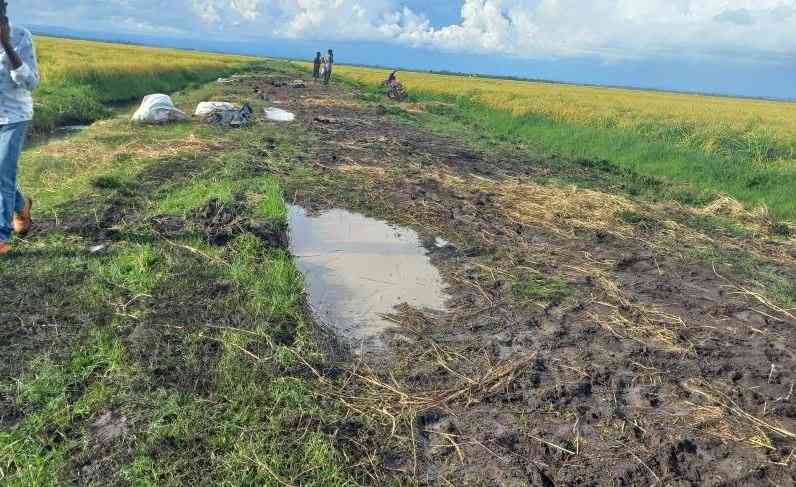Agriculture, particularly food production, is the backbone of Kenya’s economy. Despite its vast potential, the sector’s growth has been severely hampered by the combined effects of climate change and shortcomings in policy formulation and implementation.
Farmers face numerous challenges, including declining productivity due to climate change, limited market access, inadequate credit facilities, and insufficient training in sustainable agricultural practices such as soil fertility management. These issues have led to high post-harvest losses and missed opportunities within the local value chain, ultimately worsening food insecurity.
Comprehensive reforms are needed to modernise and strengthen the sector. In particular, greater attention should be given to rice farming. Rice is one of the most consumed cereals in Kenya. As dietary habits shift and the population continues to grow, demand for rice has far outpaced local production capacity.
According to data from the Kenya National Bureau of Statistics, Kenya consumes over one million metric tonnes of rice annually, while local production stands at approximately 230,000 metric tonnes. In 2023 alone, this production gap led to imports worth about Sh54.7 billion, covering 937,098.5 metric tonnes.
Strategic reforms must address the core challenges faced by rice farmers. A key focus area is improving access to affordable financial services. Smallholder rice farmers, in particular, require credit to manage daily operations and invest in modern, resource-intensive technologies. Establishing agricultural credit schemes and specialised microfinance institutions can unlock essential capital for these farmers.
Investments in agricultural research, development, and farmer training are especially critical in addressing emerging threats such as climate change, pests, and diseases. The government and private sector stakeholders should roll out support programmes aimed at equipping farmers with practical knowledge on pest and disease control including identifying the right pesticides and knowing when and how to use them effectively.
Additionally, to safeguard farming in the face of unpredictable rainfall and prolonged dry spells, these programmes should also train farmers in water harvesting, storage, and irrigation techniques. Farmers should also be supported in adopting fast-maturing, high-yielding, and drought-resistant rice varieties such as the new Komboka rice variety, which has demonstrated these desirable traits and is increasingly being adopted across the country.
By promoting the widespread adoption of sustainable agricultural practices, the country can significantly improve productivity in rice farming and contribute to overall food security. When farmers are equipped with current knowledge and practical skills, they are able to embrace new technologies, effectively manage pests and diseases, and sustainably boost their yields, ensuring long-term success and resilience in agriculture.
Efforts to strengthen food security must span the entire agricultural value chain. Government food policies, however, remain a subject of ongoing debate. For instance, the National Rice Development Strategy needs to go beyond import substitution. It should incorporate State-backed initiatives that directly address farmers’ challenges and introduce mechanisms to cushion the country from anticipated shortfalls in production.
Mr Rajan is the CEO of Capwell Industries
Agriculture, particularly food production, is the backbone of Kenya’s economy. Despite its vast potential, the sector’s growth has been severely hampered by the combined effects of climate change and shortcomings in policy formulation and implementation.
Farmers face numerous challenges, including declining productivity due to climate change, limited market access, inadequate credit facilities, and insufficient training in sustainable agricultural practices such as soil fertility management. These issues have led to high post-harvest losses and missed opportunities within the local value chain, ultimately
worsening food insecurity
.
Comprehensive reforms are needed to modernise and strengthen the sector. In particular, greater attention should be given to rice farming. Rice is one of the most consumed cereals in Kenya. As dietary habits shift and the population continues to grow, demand for rice has far outpaced local production capacity.
According to data from the Kenya National Bureau of Statistics, Kenya consumes over one million metric tonnes of rice annually, while local production stands at approximately 230,000 metric tonnes. In 2023 alone, this production gap led to imports worth about Sh54.7 billion, covering 937,098.5 metric tonnes.
Strategic reforms must address the
core challenges faced by rice farmers
. A key focus area is improving access to affordable financial services. Smallholder rice farmers, in particular, require credit to manage daily operations and invest in modern, resource-intensive technologies. Establishing agricultural credit schemes and specialised microfinance institutions can unlock essential capital for these farmers.
Investments in agricultural research, development, and farmer training are especially critical in addressing emerging threats such as climate change, pests, and diseases. The government and private sector stakeholders should roll out support programmes aimed at equipping farmers with practical knowledge on pest and disease control including identifying the right pesticides and knowing when and how to use them effectively.
Additionally, to safeguard farming in the face of unpredictable rainfall and prolonged dry spells, these programmes should also train farmers in water harvesting, storage, and irrigation techniques. Farmers should also be supported in adopting fast-maturing, high-yielding, and drought-resistant rice varieties such as the new Komboka rice variety, which has demonstrated these desirable traits and is increasingly being adopted across the country.
By promoting the widespread adoption of sustainable agricultural practices, the country can significantly improve productivity in rice farming and contribute to overall food security. When farmers are equipped with current knowledge and practical skills, they are able to embrace new technologies, effectively manage pests and diseases, and sustainably boost their yields, ensuring long-term success and resilience in agriculture.
Efforts to strengthen food security must span the entire agricultural value chain. Government food policies, however, remain a subject of ongoing debate. For instance, the National Rice Development Strategy needs to go beyond import substitution. It should incorporate State-backed initiatives that directly address farmers’ challenges and introduce mechanisms to cushion the country from anticipated shortfalls in production.
Mr Rajan is the CEO of Capwell Industries
By Rajan Shah


